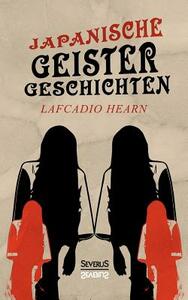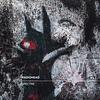You need to sign in or sign up before continuing.
Take a photo of a barcode or cover
Un libro ligero para leerlo con calma. El diseño del libro te hace sumergirte dentro de la narración de lleno. He disfrutado con la selección de historias y con las ilustraciones preciosas.
dark
mysterious
reflective
medium-paced
Plot or Character Driven:
A mix
Strong character development:
N/A
Loveable characters:
N/A
Diverse cast of characters:
Complicated
Flaws of characters a main focus:
Complicated
A fascinating collection of old folk tales from Japan. From what I father, these have been collected from at least 3 of Hearn’s books about Japan to make this Penguin volume.
While not all of the stories struck me as particularly interesting, all of them were well-written, the style both evocative and mysterious. I can see why these are now a classic in Japan.
My favourite stories were:
The Story of Aoyagi
While not all of the stories struck me as particularly interesting, all of them were well-written, the style both evocative and mysterious. I can see why these are now a classic in Japan.
My favourite stories were:
The Story of Aoyagi
The Story of Mimi-Nashi-Hoichi
The Story of Kwashin Koji
Rokuro-kubi
The Dream of Akinosuke
The Story of Ito Norisuke
informative
medium-paced
Plot or Character Driven:
Plot
Strong character development:
Complicated
Loveable characters:
Complicated
Diverse cast of characters:
N/A
Flaws of characters a main focus:
Yes
challenging
dark
emotional
funny
informative
lighthearted
mysterious
reflective
relaxing
sad
slow-paced
Plot or Character Driven:
N/A
Strong character development:
N/A
Loveable characters:
Complicated
Diverse cast of characters:
Yes
Flaws of characters a main focus:
No
Very few of these stories are actually scary, and about half of them only seem to carry the sweet mystery of Japan. But, at least, none of the stories seemed down right bad. These were my favourites: A passional Karma, Jiu-roku-zakura, Yuki-onna, The reconciliation, Mujina, Yotsuya Kwaidan, Shiramine, The ghost that bought candy.
dark
mysterious
fast-paced
Plot or Character Driven:
Plot
Strong character development:
No
Loveable characters:
No
Diverse cast of characters:
Yes
Flaws of characters a main focus:
No
"Histoires de Fantômes du Japon" est un très bel ouvrage dans lequel Benjamin Lacombe illustre le travail de Lafcadio Hearn.
Pour ce qui est des histoires, elles nous plongent dans une culture très intéressante, propre au Japon. On y découvre certains yokais qui ne sont pas toujours des fantômes comme nous pouvons l'entendre en Occident. Les histoires sont plus ou moins courtes et parfois assez inégales entre elles. Certaines ont un côté très poètique et ont des dénouements très surprenants !
Du côté du visuel, l'ouvrage est une véritable merveille ! Tout est pensé et illustré ! Le travail de Benjamin Lacombe nous permet de nous plonger davantage dans les contes qu'il sublime avec son art. Outre les pages A4 entièrement illustrées, il y a aussi quelques dessins qui se glissent dans les pages écrites de l'oeuvre rendant le texte plus "vivant".
Je ne m'attendais pas du tout à ce que j'ai lu dans cet ouvrage et, même si je ne suis pas déçue, je pense toute même être passé à côté de beaucoup d'éléments/références/détails car je ne comprenais pas toute les subtilités du texte. Il n'en reste pas moins une bonne découverte
Review complémentaire + photo : https://www.instagram.com/p/CEd9EB8ncUW/
Pour ce qui est des histoires, elles nous plongent dans une culture très intéressante, propre au Japon. On y découvre certains yokais qui ne sont pas toujours des fantômes comme nous pouvons l'entendre en Occident. Les histoires sont plus ou moins courtes et parfois assez inégales entre elles. Certaines ont un côté très poètique et ont des dénouements très surprenants !
Du côté du visuel, l'ouvrage est une véritable merveille ! Tout est pensé et illustré ! Le travail de Benjamin Lacombe nous permet de nous plonger davantage dans les contes qu'il sublime avec son art. Outre les pages A4 entièrement illustrées, il y a aussi quelques dessins qui se glissent dans les pages écrites de l'oeuvre rendant le texte plus "vivant".
Je ne m'attendais pas du tout à ce que j'ai lu dans cet ouvrage et, même si je ne suis pas déçue, je pense toute même être passé à côté de beaucoup d'éléments/références/détails car je ne comprenais pas toute les subtilités du texte. Il n'en reste pas moins une bonne découverte
Review complémentaire + photo : https://www.instagram.com/p/CEd9EB8ncUW/
I picked up this book on a whim. I saw it at a book store, and I generally like Penguin Classics, so I figured I'd expand on my knowledge of spooky stuff and give Japanese Ghost Stories a whirl.
Overall, I think this is a good collection, particularly because it focuses on the work of one historic writer/translator: Lafcadio Hearn. I didn't know anything about him going into this book, but the introduction gives readers a pretty good overview about his life, so I found it very helpful. The intro also helped me to orient myself in the time period and literary movements in which Hearn was working and reminded me that what we're reading isn't necessarily Japanese literature written by Japanese people (though it kind of is), but a late 19th-early 20th century translator's interpretation of Japanese tales. While we may have some qualms over who is allowed to tell what stories, I do think studying the work of translators like Hearn tells us something about the literary movements of the time and the way Orientalism may or may not function, so for that, this book is incredibly useful.
But that being said, I can't say I walked away with a greater understanding of Japanese folklore. I gleaned what I could through osmosis, but I found it very difficult to understand certain parts of the tales because information is split between footnotes and endnotes. There also wasn't a lot of critical apparata to help assist me with putting Hearn's work in a Japanese context, so it was difficult to connect individual stories to particular aspects of Japanese history or culture. Perhaps this is beyond the scope of the book, though, because it's not really a collection of Japanese Ghost Stories but a collection of Hearn's Japanese Ghost Stories. I think that distinction is important and will affect how readers approach this volume.
TL;DR: Japanese Ghost Stories is a good collection of tales that focuses on the translation work of a single author at the turn of the century. While the Penguin edition offers little in terms of critical support and can be difficult to read because of the split between footnotes and endnotes, overall, the selection is good and each tale is short enough for readers to get a quick scare between other reads or at free moments throughout the day.
Overall, I think this is a good collection, particularly because it focuses on the work of one historic writer/translator: Lafcadio Hearn. I didn't know anything about him going into this book, but the introduction gives readers a pretty good overview about his life, so I found it very helpful. The intro also helped me to orient myself in the time period and literary movements in which Hearn was working and reminded me that what we're reading isn't necessarily Japanese literature written by Japanese people (though it kind of is), but a late 19th-early 20th century translator's interpretation of Japanese tales. While we may have some qualms over who is allowed to tell what stories, I do think studying the work of translators like Hearn tells us something about the literary movements of the time and the way Orientalism may or may not function, so for that, this book is incredibly useful.
But that being said, I can't say I walked away with a greater understanding of Japanese folklore. I gleaned what I could through osmosis, but I found it very difficult to understand certain parts of the tales because information is split between footnotes and endnotes. There also wasn't a lot of critical apparata to help assist me with putting Hearn's work in a Japanese context, so it was difficult to connect individual stories to particular aspects of Japanese history or culture. Perhaps this is beyond the scope of the book, though, because it's not really a collection of Japanese Ghost Stories but a collection of Hearn's Japanese Ghost Stories. I think that distinction is important and will affect how readers approach this volume.
TL;DR: Japanese Ghost Stories is a good collection of tales that focuses on the translation work of a single author at the turn of the century. While the Penguin edition offers little in terms of critical support and can be difficult to read because of the split between footnotes and endnotes, overall, the selection is good and each tale is short enough for readers to get a quick scare between other reads or at free moments throughout the day.
Didn’t really care for the way the book was formatted. I was planning to finish it but I lost it during work travel.
Libro que me ha encantado, que cuenta diversas historias y bibliografía de diversos fantasmas japonesas de la mitología




